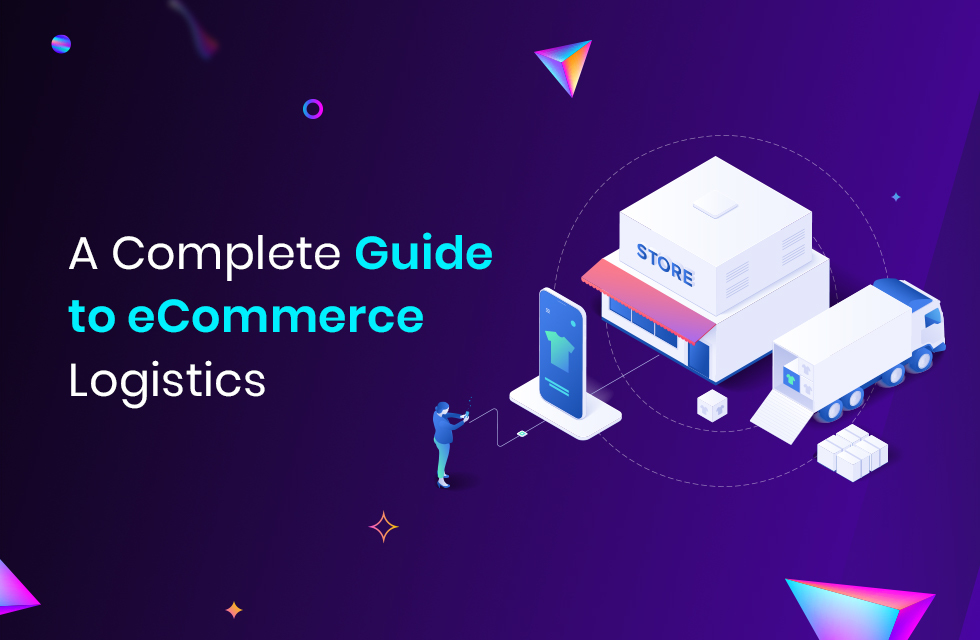
A Complete Guide to eCommerce Logistics
eCommerce logistics is complex and ever-changing. Everything from new delivery methods to cross-border shipping issues can impact your business because everything is interconnected and plays a significant role in eCommerce logistics.
With around 12 to 24 million eCommerce stores across the globe, the competition is only soaring up. Though the numbers don’t end here as the total value of eCommerce accounted in 2021 was 4.9 trillion U.S. dollars worldwide. This count will only grow in the upcoming years as more and more people are now comfortable buying things online.
As the eCommerce industry grows rapidly, it’s more important than ever for businesses to stay ahead of the curve in logistics. By understanding the challenges and opportunities in eCommerce logistics, companies can create a strategic plan that will help them save time and money.
With this blog, you can learn everything about eCommerce logistics and the importance of logistics services. So, what are you waiting for? Let’s dive into the world of eCommerce logistics!
What is eCommerce Logistics?
Ecommerce logistics services refer to managing the transportation and delivery of online goods. It also includes the management of returns and refunds. The aim here is to provide a seamless customer experience by ensuring that products are delivered on time and in perfect condition.
Businesses need to understand the eCommerce market’s different complexities to achieve seamless shipping. It includes understanding the different delivery methods and shipping options available and the regulations for cross-border transactions.
Types of eCommerce Logistics
Inbound logistics
This covers the transportation of goods from suppliers to warehouses. It also includes receiving, storing, and handling goods in the warehouse.
Outbound logistics
This involves shipping goods from the warehouses to customers. It also covers returns and refunds management.
Both inbound and outbound logistics are essential for a successful eCommerce business. However, outbound logistics is more critical as it directly impacts the customer experience.
How Can Logistics & eCommerce Companies Work Together?
Logistics plays a vital role in eCommerce as it ensures smooth and hassle-free operations. It covers various aspects, such as transportation, storage, packaging, and delivery of goods. All these factors are essential to provide a seamless customer experience.
Moreover, logistics can help eCommerce businesses in the following ways:
- Reduced Shipment Time: By understanding the global eCommerce market and its complexities, businesses can reduce the shipment time for their products. Further, they will be able to select the most appropriate shipping option and delivery method based on the destination pin code.
- Minimized Order Fulfilment Time:eCommerce businesses face a significant challenge in terms of order fulfilment. They need to ensure that orders are delivered on time and in perfect condition. Logistics partners can help eCommerce sellers minimize their order fulfilment time by carefully planning the transportation and storage of goods.
- Reduced Delivery Costs: Another benefit of logistics services is that it helps businesses reduce their delivery costs. Companies can choose the most efficient and cost-effective shipping option based on their products’ dimensions and travel distance.
- Increased Customer Satisfaction: Logistics plays a vital role in ensuring customer satisfaction. By providing on-time delivery and minimizing the chances of damaged goods, logistics companies can help eCommerce businesses increase their customer satisfaction levels.
- Improved Brand Reputation: Brand reputation is essential for any business, and eCommerce is no exception. Logistics can help businesses in this area by ensuring that their products are delivered on time and perfectly. It will improve the customers’ perception of the brand and encourage them to purchase from the brand again.
- Easy Returns and Refunds: A critical part of outbound logistics is handling returns and refunds. By using the correct tools and processes, businesses can handle these tasks efficiently and provide a good customer experience.
- After-ship Support: Logistics services can also help businesses in providing after-sales support to their customers. It includes real-time tracking, shipment updates, etc.
Conclusion
eCommerce logistics is a critical function for any online business. It helps companies in various ways, such as reducing shipment time, minimizing order fulfilment time, reducing delivery costs, increasing customer satisfaction, improving brand reputation, handling returns and refunds, and providing after-ship support.
By understanding the global eCommerce market and its complexities, businesses can make the most of the logistics services and improve their brand value among customers. Thus, eCommerce merchants need to understand the importance of eCommerce logistics and its benefits to be successful in the online retail sector.